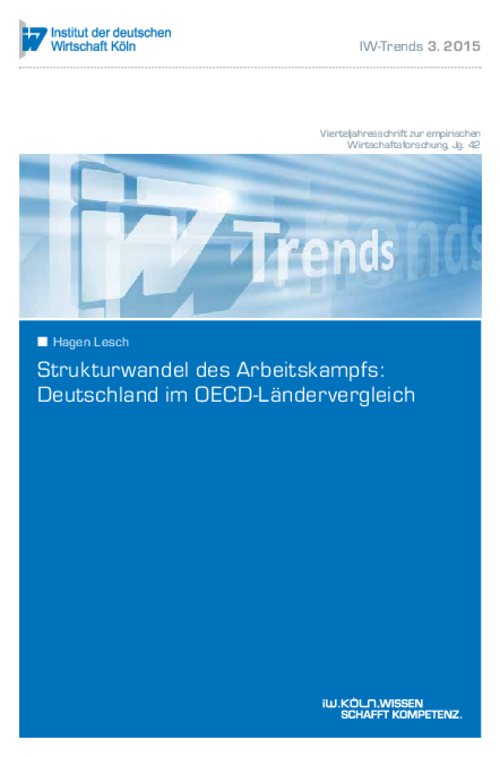A comparison of Germany with other OECD countries

Structural change in industrial action
IW-Trends

A comparison of Germany with other OECD countries
With an average annual loss of three working days per thousand employees, Germany is still one of the stablest OECD countries in terms of labour relations. Since 2010 an annual average of 26 days have been lost in the United Kingdom and 139 days in France. That strikes are more common in other countries is partly connected with the politically motivated general strikes which have increased as a result of the economic and financial crisis. In Germany the crisis brought few lost days, with government and trade unions actually coming closer. Generally speaking, strike action in Germany has shifted to the service sector. Since 2005 more than three quarters of all industrial action-related losses of working hours have occurred in the tertiary sector. With this tertiarisation of industrial action the number of strikers per affected establishment has declined from 583 (1995/99) to 64 (2010/2014). However, the average length of strikes has increased from 0.9 days to 2.8.

Hagen Lesch: Strukturwandel des Arbeitskampfs: Deutschland im OECD-Ländervergleich
IW-Trends

More on the topic

German Wage Policy between Inflation and Stagnation: Are Conflicts with the Aims of Monetary Policy Looming?
After the economic and financial crisis of 2008/9, the German labour market soon began to recover, creating scope for a comparatively expansive wage policy.
IW
The Pros and Cons of Trade Union Membership
The decline in collective bargaining coverage in Germany is often attributed to the reluctance of companies to join an employers' association which negotiates collective agreements.
IW